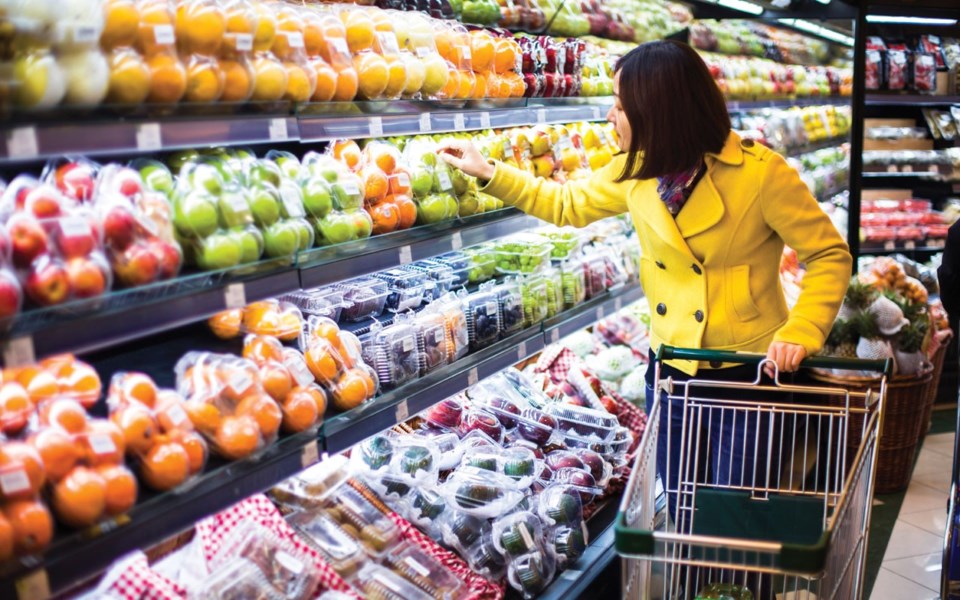The cost of groceries is once again projected to rise at a rate higher than inflation in 2020, putting an added burden on families and Whistler's local social services provider.
Lori Pyne, interim director of the Whistler Community Services Society (WCSS), said that food costs are impacting the organization's bottom line.
"We've added seven per cent [to our annual budget] to account for rising food costs," said Pyne. "And we expect to see more emergency food bags given out [in 2020] because more people will be in need because of the rising food prices."
According to the annual Canada's Food Price Report for 2020, grocery prices across the country will increase between two and four per cent in 2020.
Prepared by Dalhousie University and University of Guelph, the report predicts that annual food expenditure for the average Canadian family will rise by an additional $487 over 2019 figures, and that household will spend $12,667 on food (a figure that includes nights out).
Approximately four million Canadians, including 1.15 million children, are currently considered food insecure, meaning they are unable to obtain a sufficient amount of healthy food on a day-to-day basis.
Food insecurity is also a problem here in Whistler. In 2018, the WCSS's food bank received 2,773 visits, said Pyne.
According to the report, 2019 saw a 3.5 per cent increase in food price when monitored between October 2018 and September 2019.
The price increases are a cause for concern for Canadians across the board, not just here in Whistler.
A recent survey, conducted by Angus Reid in early December, found that 87 per cent of Canadians feel that food prices are increasing faster than household income.
Pyne said that there are ways to save money on groceries and still eat nutritious meals, such as buying uncooked beans in bulk. "It is far more nutritious and cheaper," she said, noting that there can be a high amount of sodium in canned products.
Pyne highlighted the WCSS' Food Skills and Nutrition Program as a way that the organization is helping to teach healthy eating on a budget.
Open to families and seniors, the class advises participants on how to plan meals and encourages the use of whole foods rather than processed ones.
Sylvain Charlebois, director of Agri-Food Analytics Lab and lead author on the food price report, attributed the 2019 price increases, in part, to recalls and alerts.
Vegetables went up the most in 2019, rising an astonishing 12 per cent.
"Essentially, everything that's green in the produce section went up," said Charlebois. "That really brought the overall food inflation rate to almost four per cent."
The food price report also draws a connection between global warming and rising food pricing, saying that going forward, Canadian food systems will be impacted by changing weather patterns.
"Climate models suggest that Canada's agricultural regions will subsequently feel the impacts of a drier summer season and increased spring and winter precipitation," it reads.
"Absolutely, there is a correlation between climate change and what's happening with food prices overall," said Charlebois.
The federal government released a food policy in June 2019 (a first of its kind), but Charlebois said that it falls short of addressing the underlying causes of rising grocery store bills.
"The food policy was great news for food banks and people in need," he said. "But I'm not sure the food policy itself is actually going to address issues like price volatility at the grocery store, or food inflation per se. I don't see it [happening]."
WCSS's food bank is open every Wednesday from 10 a.m. to noon and is located in the WCSS building at 8000 Nesters Rd.
For more info on the WCSS's Food Skills and Nutrition Program check out mywcss.org/programs/food-skills-and-nutrition-program.




